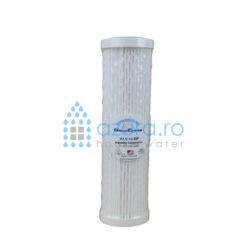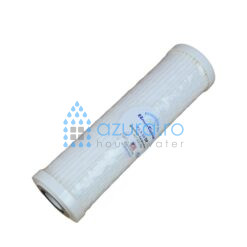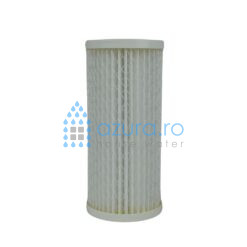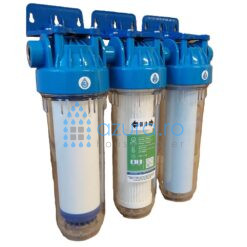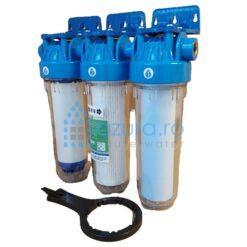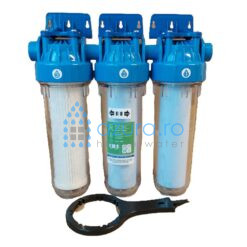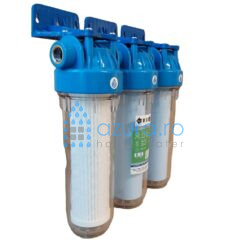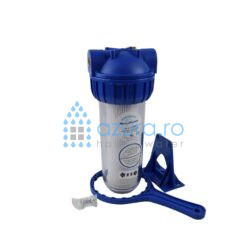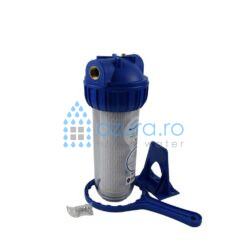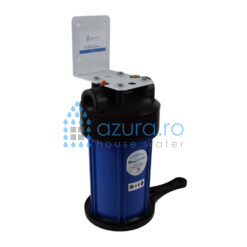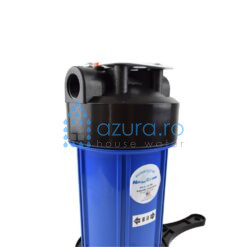ARGONIDE NanoCeram® NanoCeram® are filters made in the USA to eliminate bacteria, protozoa and cysts.
NSF 53 certified ARGONIDE NanoCeram® technology
Most filters mechanically separate particles from the water. This is true for most membranes and filters. Electropositive filters mainly use adsorption, i.e. electro-adhesion, as a filtration technique. The Argonide NanoCeram® technology is a combination of the fiber (mechanical) filtration technique and the new electropositive filtration technique. This new technology also has a much higher flow rate compared to the old technology.
Argonide NanoCeram® is a fibrous and electropositive filtration medium with high efficiency in removing particles and dirt. When this technology is incorporated into a pleated filter, its flow rate is equivalent or higher compared to 1 or 2 micron pleated filters. The absolute filtration for ARGONIDE NanoCeram® is 0.2 microns, but the flow rate for a standard 10" tall filter with a 2.5" diameter is 37.8 liters with a pressure drop of only 0.7 bar (initial flow rate and when the filter is clean).
Argonide NanoCeram® and bacteria filtration
In general a NanoCeram® filter has a pore thickness of 1 mm. However, it is capable of an adsorption rate of 99.9999% bacteria and even smaller, such as Klebsiella terrigena bacteria (0.5 microns).
A significant factor contributing to this adsorption performance is the huge active surface area of Argonide NanoCeram® NanoCeram® filters. For example, a standard 10″ x 2.5″ NanoCeram® filter has a surface area of 2.7 m2. However, the adsorptive surface area for the same filter is 13935 m2.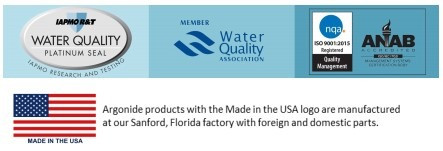
Who manufactures Argonide NanoCeram® filters?
These filters are manufactured in Florida, USA.

